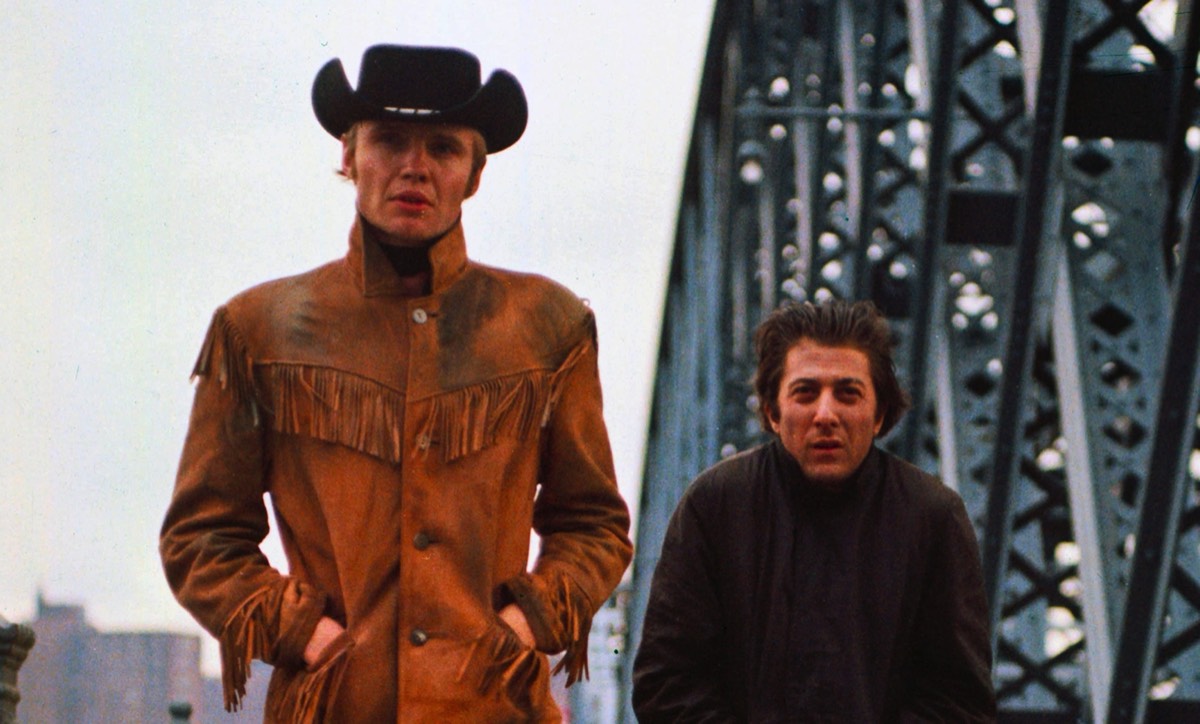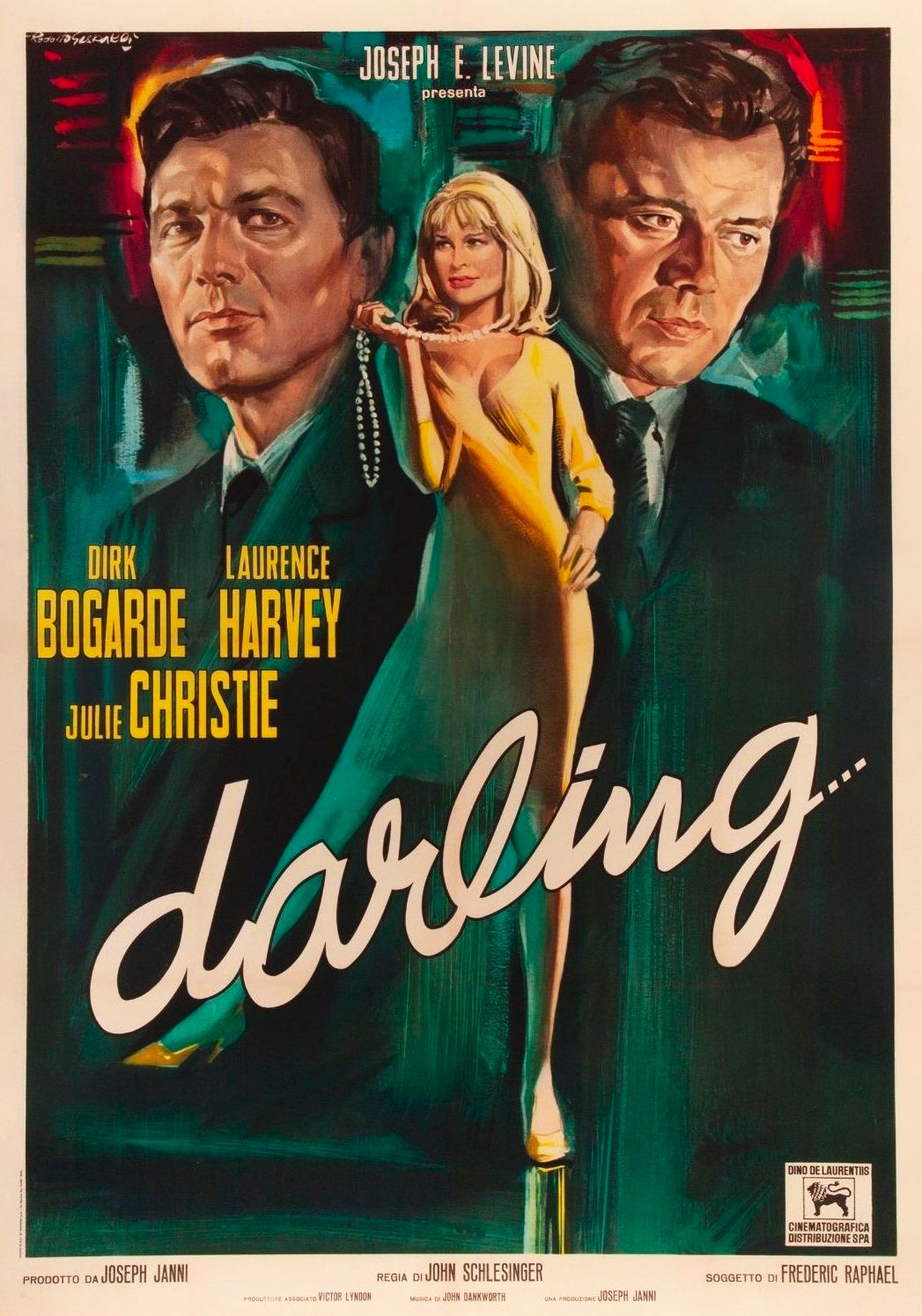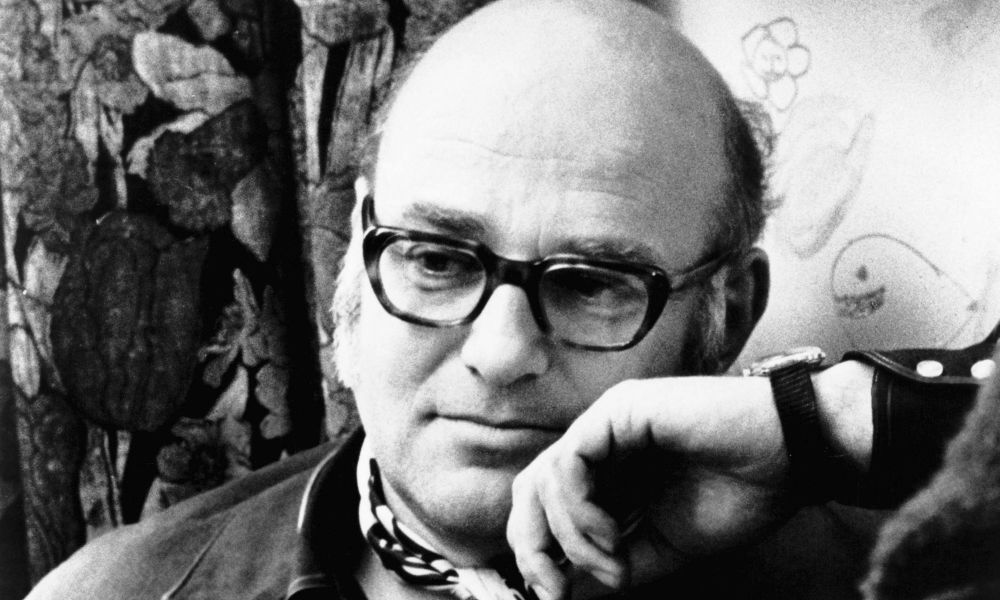"John Schlesinger always stood slightly apart from the other directors of the British New Wave, and rarely enjoyed the same critical acclaim as Royal Court intellectuals Lindsay Anderson, Tony Richardson, and Karel Reisz. But he was the most commercially successful filmmaker of the group, and outlasted them creatively." - Philip Kemp (501 Movie Directors, 2007)
John Schlesinger
Key Production Countries: UK, USA
Key Genres: Drama, Romance, Comedy, Romantic Drama, Period Film, Satire, Unglamorized Spy Film, Comedy of Manners
Key Collaborators: Joseph Janni (Producer), Jim Clark (Editor), Julie Christie (Leading Actress), Alan Bates (Leading Actor), Richard Rodney Bennett (Composer), Richard Macdonald (Production Designer), Ray Simm (Production Designer), Dustin Hoffman (Leading Actor), Peter Finch (Leading Actor), William Devane (Leading Actor), Willis Hall (Screenwriter), Waldo Salt (Screenwriter)
Key Genres: Drama, Romance, Comedy, Romantic Drama, Period Film, Satire, Unglamorized Spy Film, Comedy of Manners
Key Collaborators: Joseph Janni (Producer), Jim Clark (Editor), Julie Christie (Leading Actress), Alan Bates (Leading Actor), Richard Rodney Bennett (Composer), Richard Macdonald (Production Designer), Ray Simm (Production Designer), Dustin Hoffman (Leading Actor), Peter Finch (Leading Actor), William Devane (Leading Actor), Willis Hall (Screenwriter), Waldo Salt (Screenwriter)
"Moving as he did between America and Britain, John Schlesinger regarded himself as a "mid-Atlantic" director. His films reflects this cross-fertilization." - Ronald Bergan (Film - Eyewitness Companions, 2006)
"Fittingly for someone who also worked prolifically in theatre, Schlesinger’s directorial career can be split into three acts. The first was spent as a leading light of the British New Wave, helming kitchen sink classics such as A Kind of Loving (1962) and Billy Liar (1963). His second saw a transition to Hollywood, where the huge success of Midnight Cowboy (1969) and Marathon Man (1976) established him as a formidable international talent. That reputation was sullied by the catastrophic failure of Honky Tonk Freeway (1981), and he spent the two decades of his closing act on features of variable quality. One of few openly gay directors working during the mid-20th century, Schlesinger tackled matters of sexuality in his films with unusual frankness for the era." - Chloe Walker (BFI, 2022)

Midnight Cowboy (1969)
"Often acclaimed as one of the finest directors to emerge from the flurry of low-budget, social-conscience film-making in Britain in the early '60s, John Richard Schlesinger has seen his reputation take a plunge in recent years. Indeed, even his most lauded films for the most part seem, in retrospect, hollow and misconceived." - Geoff Andrew (The Film Handbook, 1989)
"John Schlesinger’s career is interesting, firstly, because it covers half a century and therefore presents change and continuity in both his filmmaking and the society he has lived in over an adequately long period; and, secondly, because his corpus is big and complex enough to provide ample and significant information on the social and cultural conditions of his time. The cornerstones of Schlesinger’s oeuvre are a lifelong preoccupation with gender relations, particularly homosexuality, a distinctive intellectual middle-class outlook, an interest in other cultures and races, and a commitment to filmmaking as entertainment." - Béatrice Schatzmann-von Aesch (Senses of Cinema, 2003)
"Schlesinger directed one of the finest and most adult of all British films, Sunday Bloody Sunday (1971), and arguably one of the best American films, too, in Midnight Cowboy (1969). With such a reputation behind him, one may be forgiven for feeling a little disappointed at much of his subsequent, large-scale US work, especially when one remembers the delightful Billy Liar (1963), and his fine evocation of Thomas Hardy's tragic world in Far form the Madding Crowd (1967)." - Mario Reading (The Movie Companion, 2006)
"John Schlesinger was celebrated for his ability to elicit sensitive performances from his actors, a skill which drew on his own experience on the British stage in the 1950s. His style was also influenced by techniques he developed while directing TV documentaries--a period of his career characterized by extensive location shooting, tight production schedules and an emphasis on the role of editing in shaping narrative structure." - Turner Classic Movies
"If most of my films have anything in common, it's an interest in human relationships, particularly the more extraordinary and difficult kinds. I find the struggle of characters against the odds terribly interesting. I don't think I could possibly do a film about some sort of brave hero, some Errol Flynn winning the Battle of the Bulge… I'd rather do films about smaller people, outcasts." - John Schlesinger (Roger Ebert Interview, 1975)
Selected Filmography
{{row.titlelong}}
John Schlesinger / Favourite Films
Citizen Kane (1941) Orson Welles, The Discreet Charm of the Bourgeoisie (1972) Luis Buñuel, Fanny and Alexander (1982) Ingmar Bergman, The 400 Blows (1959) François Truffaut, La Grande illusion (1937) Jean Renoir, Ikiru (1952) Akira Kurosawa, Singin' in the Rain (1952) Stanley Donen & Gene Kelly, Sunset Blvd. (1950) Billy Wilder, The Third Man (1949) Carol Reed, Umberto D. (1952) Vittorio De Sica.
Source: Sight & Sound (1992)
Citizen Kane (1941) Orson Welles, The Discreet Charm of the Bourgeoisie (1972) Luis Buñuel, Fanny and Alexander (1982) Ingmar Bergman, The 400 Blows (1959) François Truffaut, La Grande illusion (1937) Jean Renoir, Ikiru (1952) Akira Kurosawa, Singin' in the Rain (1952) Stanley Donen & Gene Kelly, Sunset Blvd. (1950) Billy Wilder, The Third Man (1949) Carol Reed, Umberto D. (1952) Vittorio De Sica.
Source: Sight & Sound (1992)
John Schlesinger / Fan Club
Chris Shepherd, Lizzie Borden, Fernando León de Aranoa, Paul Kelly, Lynne Ramsay, Zach Ralston, Martin Scorsese, Todd Haynes, Spike Lee, Joanna Hogg, George Clooney, Peter Cowie.
Chris Shepherd, Lizzie Borden, Fernando León de Aranoa, Paul Kelly, Lynne Ramsay, Zach Ralston, Martin Scorsese, Todd Haynes, Spike Lee, Joanna Hogg, George Clooney, Peter Cowie.
"Fan Club"
These film critics/filmmakers have, on multiple occasions, selected this director’s work within film ballots/lists that they have submitted.
These film critics/filmmakers have, on multiple occasions, selected this director’s work within film ballots/lists that they have submitted.


